Search
Search Results
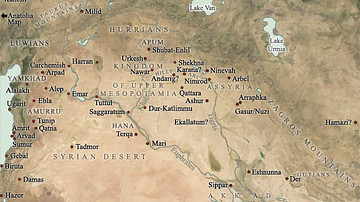
Article
Mesopotamia: The Rise of the Cities
Once upon a time, in the land known as Sumer, the people built a temple to their god who had conquered the forces of chaos and brought order to the world. They built this temple at a place called Eridu, which was “one of the most southerly...
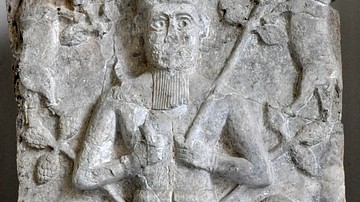
Article
The Mesopotamian Pantheon
The gods of the Mesopotamian region were not uniform in name, power, provenance or status in the hierarchy. Mesopotamian culture varied from region to region and, because of this, Marduk should not be regarded as King of the Gods in the same...
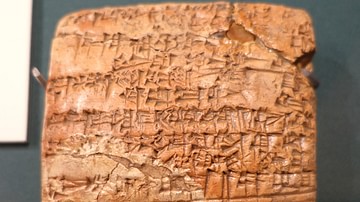
Article
Hymn to Nungal
The Hymn to Nungal (c. 2000-1600 BCE) is a Sumerian poem praising Nungal, the goddess of prisons and rehabilitation (also associated with the underworld), as well as the prison house she presided over. The piece, also known as Nungal A, was...
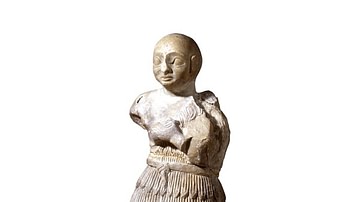
Definition
Early Dynastic Period (Mesopotamia)
The Early Dynastic Period of Mesopotamia is the modern-day archaeological term for the era in Mesopotamian history – 2900-2334 BCE – during which some of the most significant cultural advances were made including the rise of the cities, the...

Image
Map of Mesopotamia, 2000-1600 BCE
A general map of Mesopotamia and its neighbouring territories which roughly covers the period from 2000-1600 BCE reveals the concentration of city states in Sumer, in the south. This is where the first true city-states arose, although...
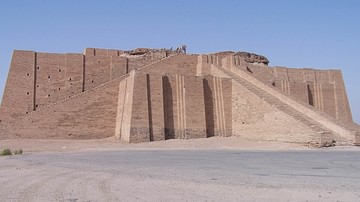
Definition
Nanna
Nanna (also known as Nannar, Nanna-Suen, Sin, Asimbabbar, Namrasit, Inbu) is the Mesopotamian god of the moon and wisdom. He is one of the oldest gods in the Mesopotamian pantheon and is first mentioned at the very dawn of writing in Sumer...
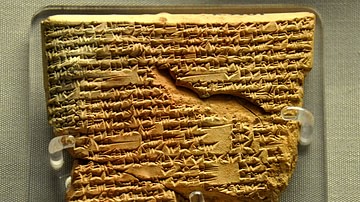
Article
Sargon and Ur-Zababa
Sargon and Ur-Zababa is a Sumerian poem, date of composition unknown, relating the rise to power of Sargon of Akkad (r. 2334-2279 BCE), founder of the Akkadian Empire. The work is classified as a Mesopotamian folktale, relying on motifs such...
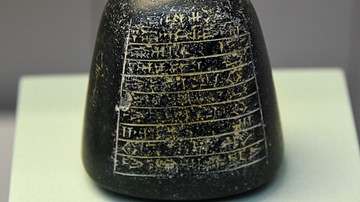
Article
Trade in Ancient Mesopotamia
Local trade in ancient Mesopotamia began in the Ubaid Period (c. 5000-4100 BCE), had developed into long-distance trade by the Uruk Period (c. 4100-2900 BCE), and was flourishing by the time of the Early Dynastic Period (2900-2334 BCE). Developments...
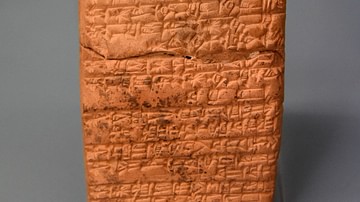
Article
Shulgi and Ninlil's Barge
Shulgi and Ninlil's Barge is a Sumerian poem dated to the reign of Shulgi of Ur (2029-1982 BCE) celebrating the caulking of the barge of the goddess Ninlil, consort of the sky god Enlil, and the banquet held in the couple's honor by Shulgi...
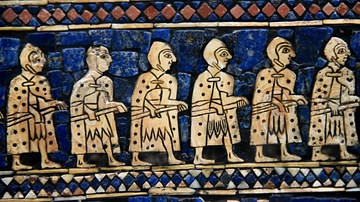
Definition
Sumerians
The Sumerians were the people of southern Mesopotamia whose civilization flourished between c. 4100-1750 BCE. Their name comes from the region which is frequently – and incorrectly – referred to as a “country”. Sumer was never a cohesive...